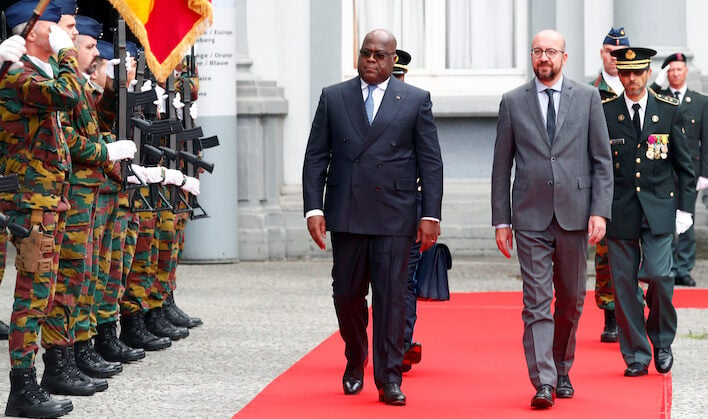This coming December 20 the 97.5 million citizens of the Democratic Republic of Congo will take to the polls in what can be expected as the most important bellwether for democracy in the region. The incumbent President Felix Tshisekedi is seeking a second term, but faces intense headwinds. Violence and rebellion continue to fester in the East of the country, thanks in no small part to meddling by Rwanda’s President Paul Kagame, while the country’s long promised economic transformation has proven incapable of distributing opportunity beyond very small camps of elites. Although the most credible opposition forces have been effectively criminalized and barred from participation by rigged courts, there remains the threat of maneuvering by the former president’s powerful family.
For these reasons, the DRC stands at a pivotal crossroad, not only for its own future, but for the general expectation of democratic elections for the region at large.
As Africa’s second-largest country, blessed with abundant natural resources and a vibrant population, the DRC has the potential to become a beacon of democracy and economic prosperity. However, to realize this vision, it is imperative for citizens and civil society groups to put greater pressure on Tshisekedi to consolidate the country’s democratic institutions and foster an environment of inclusive governance. In doing so, the DRC can unlock its true potential and set a powerful example for the entire continent. Now more than ever, the international community must lend its unwavering support to the DRC in its journey towards a robust and sustainable democracy.
Consolidating democracy in the DRC is vital for several reasons. First and foremost, a strong democratic framework is a bulwark against political instability, violence, and conflicts that have plagued the country for far too long. By establishing transparent electoral processes, safeguarding human rights, and promoting the rule of law, the DRC can effectively address the root causes of internal strife and create a foundation for lasting peace.
Secondly, a consolidated democracy empowers the citizenry and fosters social cohesion. When individuals have a voice in the decision-making process and feel their concerns are heard, a sense of ownership and belonging permeates society. This, in turn, leads to a stronger civic culture, where diverse groups can work together for the common good, bridging ethnic and regional divides that have hindered progress in the past.
Moreover, a robust democracy creates an enabling environment for sustainable economic development. By promoting transparency, accountability, and fair competition, the DRC can attract foreign investment, spur entrepreneurship, and alleviate poverty. The vast potential of the country’s mineral wealth, agriculture, and renewable resources can be harnessed to uplift the lives of its citizens and contribute to regional stability.
What about foreign intervention and influence? The sad fact of the matter is that the leadership of the DRC can do whatever it pleases, without consequence, as both China and the United States would happily continue to pour investment into the country, and neither can afford to lose access to the bounty of strategic minerals the country holds.
Instead it should be other members of the African Union who should step up on this front. The African community bears a shared responsibility to support the consolidation of democracy in the DRC. We must recognize that the DRC’s success is intertwined with our collective well-being. The stability and prosperity of the country have a direct impact on neighboring nations, particularly in Central Africa. Therefore, it is in our best interest to provide the necessary assistance and guidance to facilitate the democratic transition in the DRC.
Financial support and capacity-building programs must be channeled towards strengthening democratic institutions, promoting electoral integrity, and enhancing the judiciary’s independence. These investments will yield long-term dividends by fostering the rule of law, protecting human rights, and nurturing a vibrant civil society that can hold the government accountable.
Furthermore, international actors must emphasize diplomatic engagement, encouraging dialogue and reconciliation among political actors in the DRC. By facilitating inclusive negotiations and supporting peaceful transitions of power, we can help build a political culture that respects democratic norms and ensures a level playing field for all political parties. Mediation efforts, when necessary, can prevent crises and facilitate compromise.
While international support is crucial, the success of democracy consolidation ultimately rests in the hands of the Congolese people. The citizens of the DRC must be at the forefront of driving change and shaping their own destiny. Therefore, efforts must be made to empower local civil society organizations, grassroots movements, and youth-led initiatives. Their active participation in decision-making processes will foster a sense of ownership, promote inclusivity, and ensure that the democratic transition is deeply rooted in the aspirations of the Congolese people.
Consolidating democracy in the Democratic Republic of Congo is not an easy task, but it is an essential one. The country’s vast potential can only be fully realized within the framework of a robust and sustainable democratic system.






